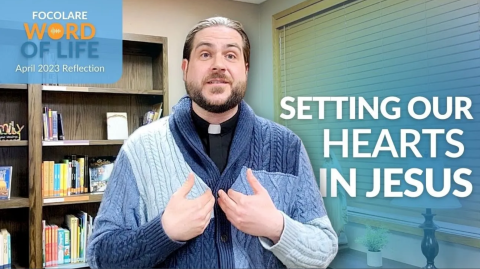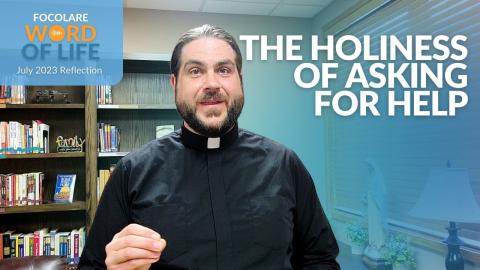How could I approach a group that didn’t want to get vaccinated?

Photo by Sarah Le Guen | Unsplash
A very important skill that I have learned, and continue to learn, from the Focolare Movement is how to love my neighbor as I love myself. I learned to love my neighbor concretely, to make myself one with their happiness, frustrations and confusion, whatever my neighbor was feeling. I simply try to put myself in their place.
I run a nonprofit that provided essential services during the pandemic. When it came time about a year ago to establish vaccine policies in the workplace, the board of directors passed a policy that required all employees to be vaccinated or request a religious or medical exemption.
There were eight employees who were opposed to being vaccinated. Despite my personal convictions, I knew that I needed to understand and respect their reasons. Of the eight employees who were opposed, five of them were from an ethnic community that in general had low vaccination rates due to distrust in the government.
Before I released the policy to all the employees, I invited each of those eight employees to my office. I met with each one privately to explain the policy. Before each meeting I consciously set the intention to love them as I loved myself. I explained the policy and the deadline for compliance.
I asked them to share their thoughts candidly and that what they said would not be held against them in any way. After listening carefully to them, I repeated what I understood.
Then I shared my opinion that I thought that they should get the vaccine and that it was safe. I also let them know that I did not think it was appropriate for an employer to make medical decisions for employees and I respected their choice.
I asked them to attend a meeting that I would set up with a bilingual medical professional from the board of health. I assured them that the meeting was private and that no one from management would be there. They could ask all the questions that they wanted. If they were still not convinced, then I would let them work up until the deadline that was required by law.
I also told them that if they wanted to apply for an exemption, the standards for a medical exemption were very narrow, but that I would approve a well-written, logical request for a religious exemption. It was at this point in the conversation that I noticed that the employees all changed.
They appreciated that I personally cared for them, but that I also respected their decision. They understood that it wasn’t me forcing my own agenda on them. They were grateful that I met with them before I released the policy to the whole agency, and that I let them know the best way to approach the exemption request.
In the end, six of the eight employees attended the information meetings. Two employees got vaccinated. Three employees were granted religious exemptions and three resigned. Of the three that resigned, one returned when the vaccine policy was rescinded in the spring.
No one was angry, and each one of them thanked me for truly listening to them and for taking their concerns seriously.












